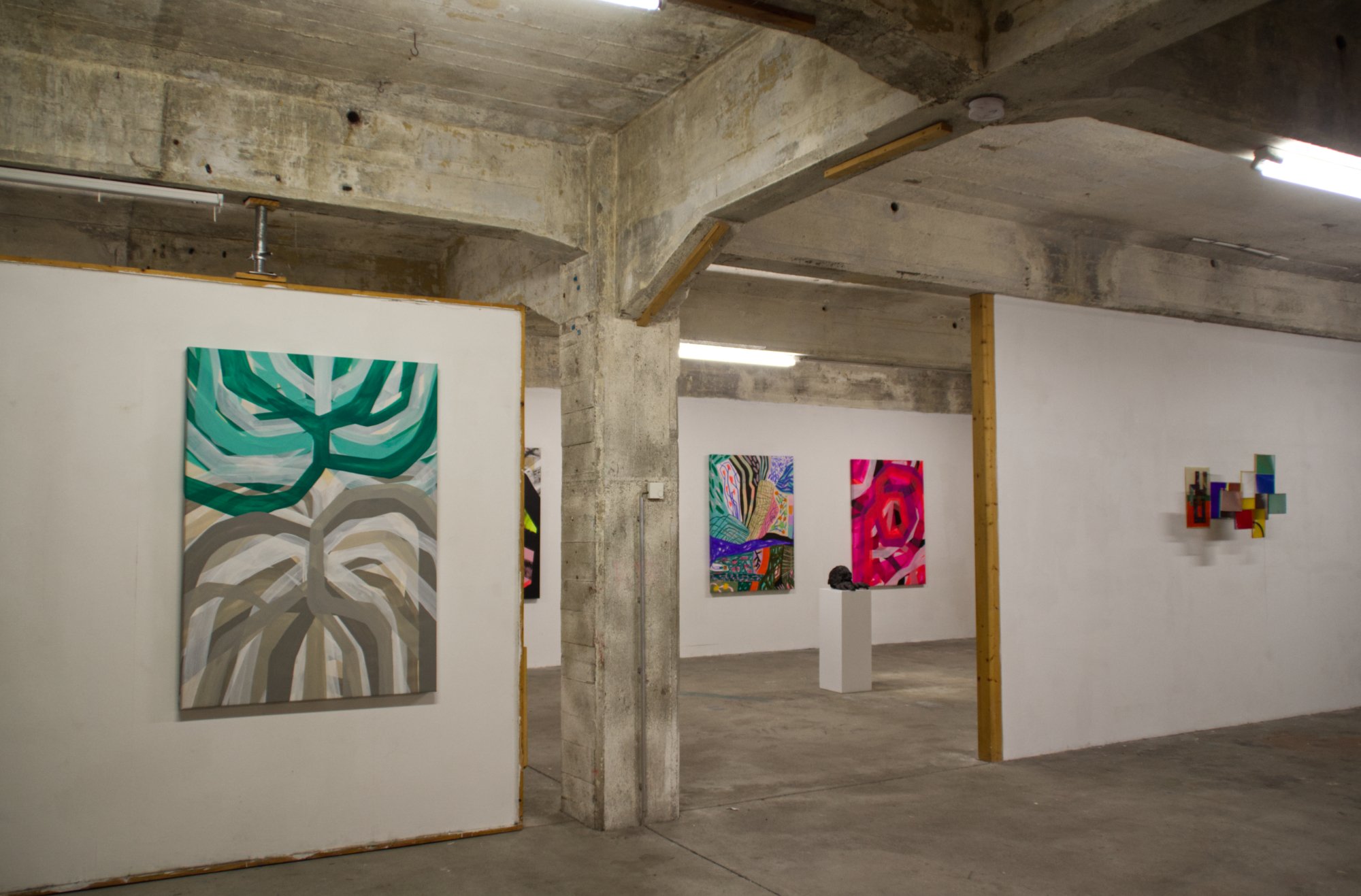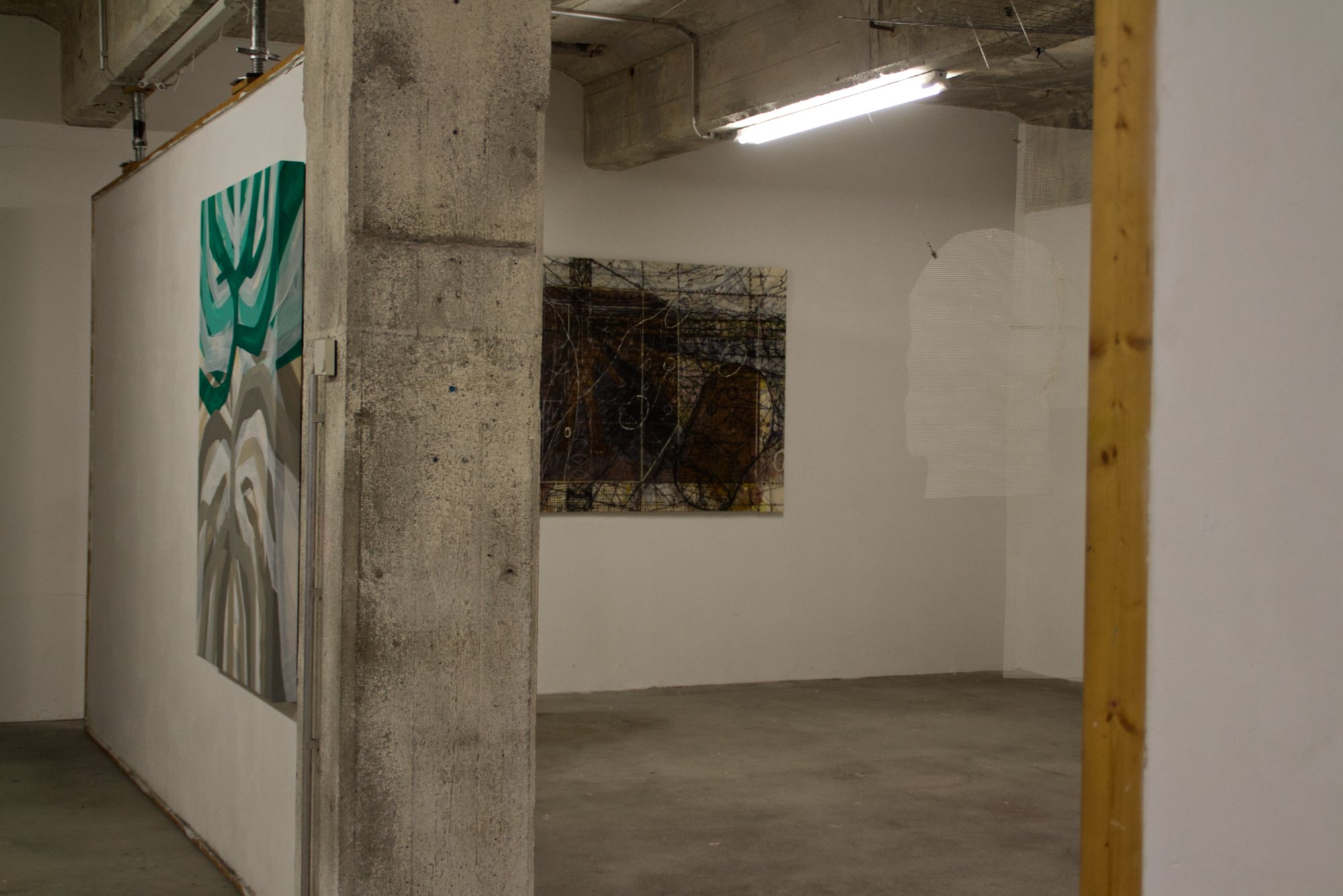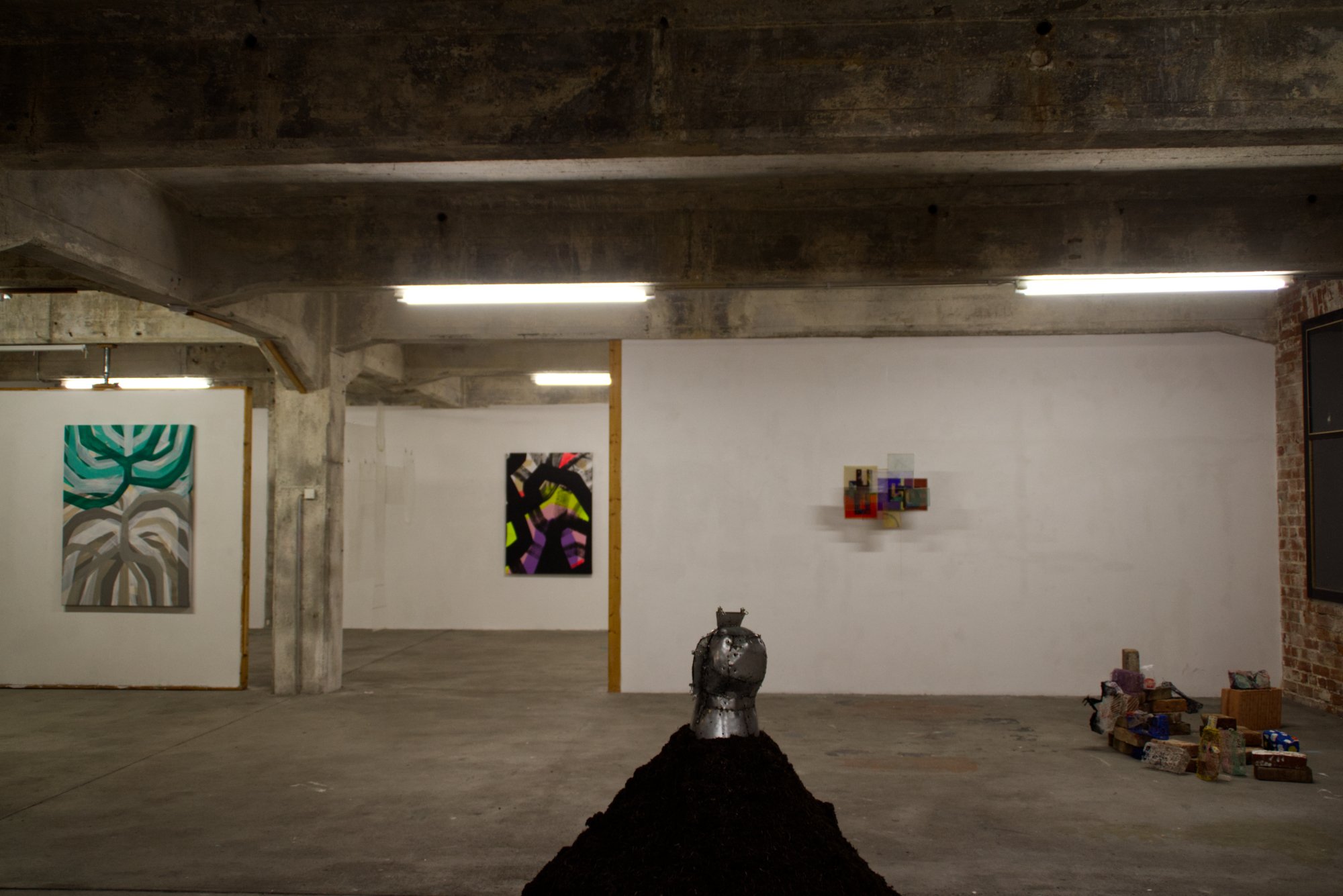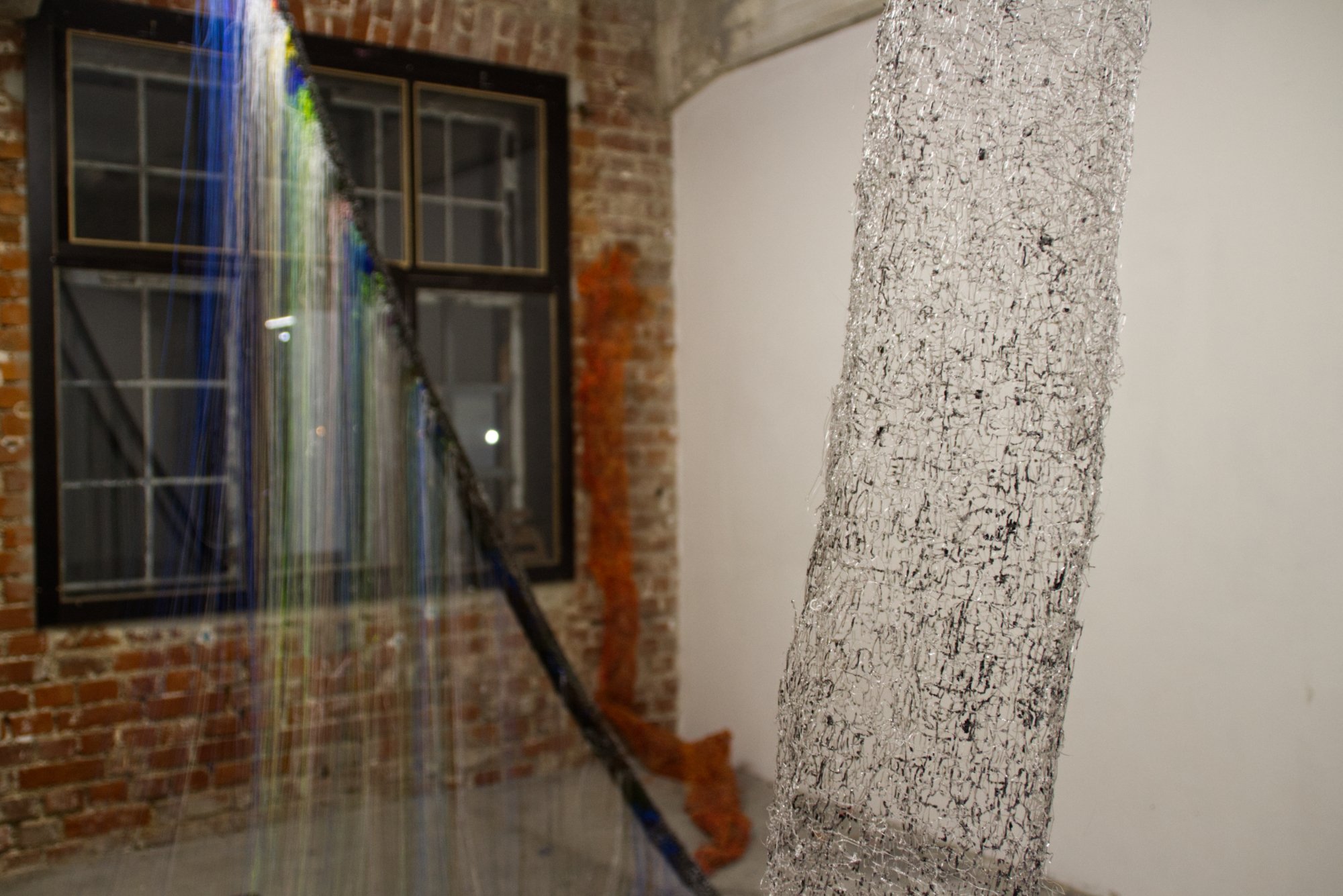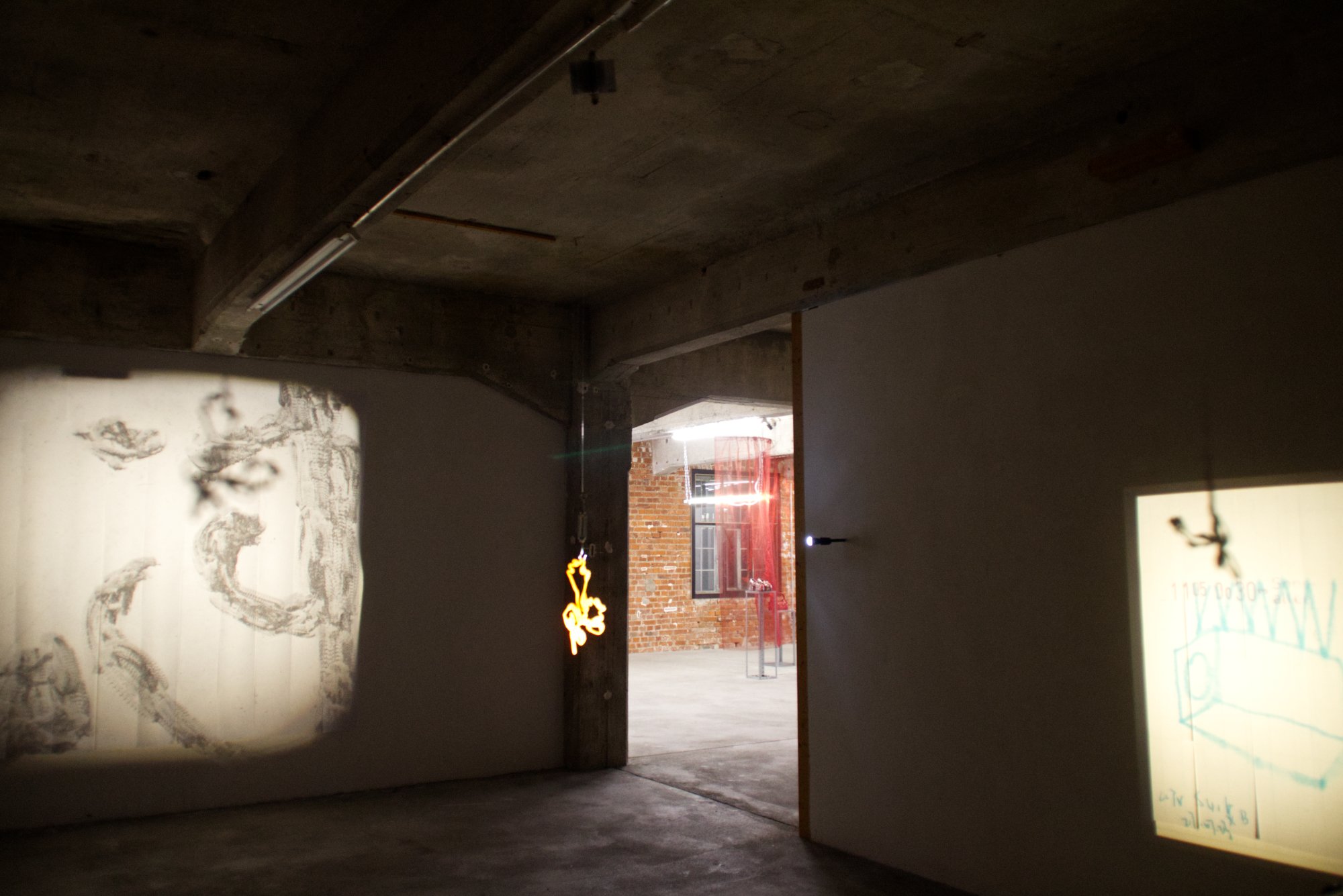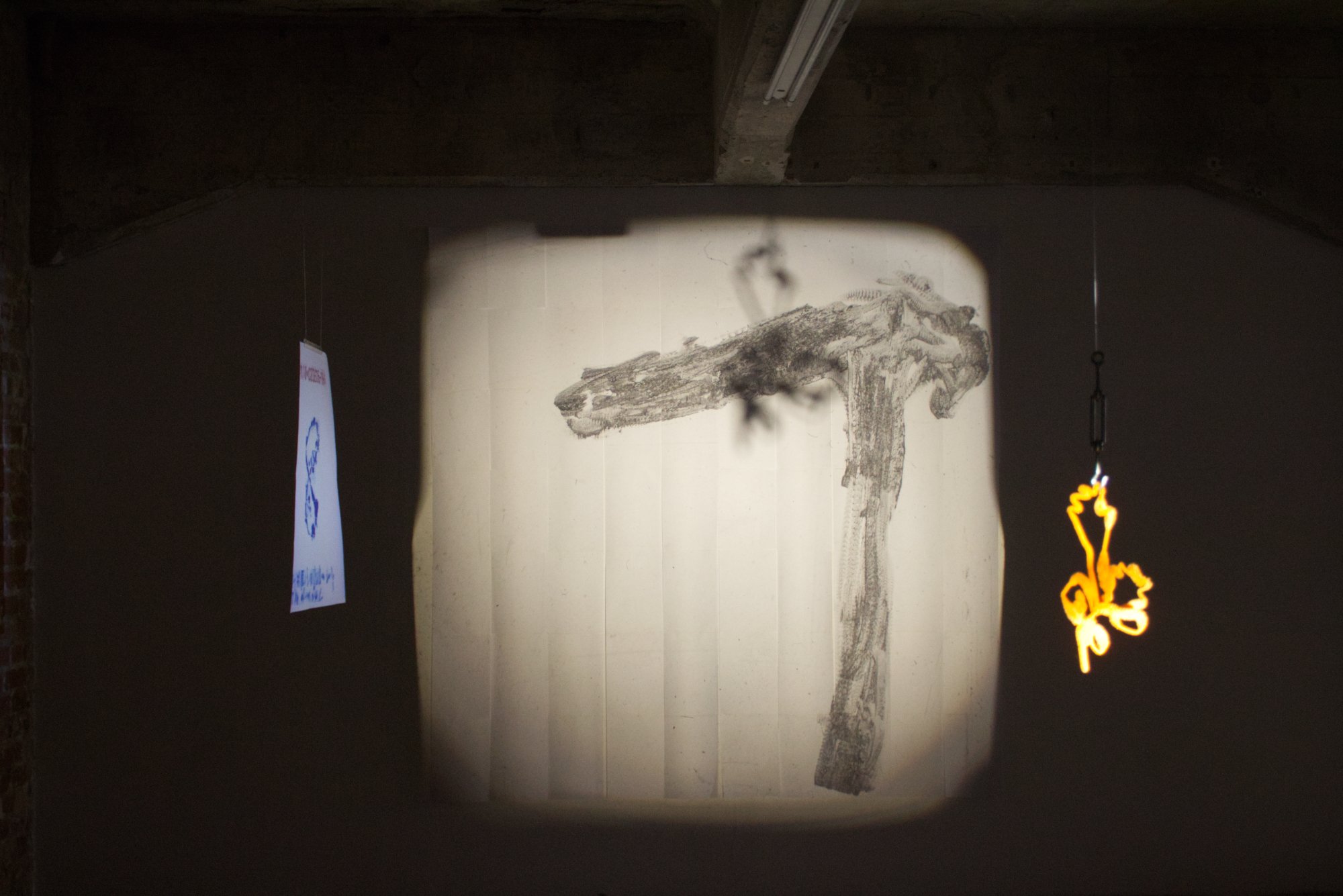
Barbed-Wire Ghost
PILOTENKUECHE 58
16.03.2024 to 20.03.2024
PILOTENKUECHE, Leipzig, Germany
Curated by Raffaella Matrone and Natalie McCann
Artists:
Alessandro Telles (BR), Bram Engelaar (NL), Seth Birch (US), Ai Huang (CN), Eunjiin Kim (KR), Saverio Bonelli (IT), Nora Neagoe (RO/UK), Léonie von Saldern (DE), Aya Ando (JP), Dagmar Zehnel (DE), Tianxu Liu (CN)
Assistants:
Margot Lallier (FR), Kintija Avena (LV), Boram Choi (KR), Jonas Lamoliatte (FR)
Photos courtesy of the curator for PILOTENKUECHE
“Are these the shadows of the things that Will be, or are they shadows of things that May be, only?”
-- Charles Dickens, A Christmas Carol, 1843
Do ghosts of the past or future haunt the present? The culmination of a three-month residency in Leipzig, PILOTENKUECHE is proud to present works of art by selected artists from around the globe who reinterpret the classic genre of ghost stories in a wide range of visual forms. The exhibition addresses the theme of hauntology, Jacques Derrida’s contention that specters of our collective past—or phantoms of what might have been—prey on the present, lingering in the margins of our peripheral vision.
Ghost stories have always been a popular genre. Over time, these beliefs have accrued and solidified into ghostlore, gems of wisdom regarding the supernatural passed down by our ancestors. The universality of ghost stories across different cultures reveals that our relationship with the past is anything but linear and straightforward. Phantoms come in many forms: close encounters with death, inner demons, echoes from across the room, nostalgia for a time since lost, and, of course, the unbidden memories that resurface as we go about our day. Specters and wraiths make their presence felt in different ways. Goosebumps on the back of your neck, shadows in the distance, a stray whisper in the wind, a fleeting sense of déjà vu…. These are the moments when we are most in touch with the invisible energy that surrounds us, always present but forever just out of reach.
Ghostlore suggests that trauma, especially, begets phantoms and apparitions. Stories with a sudden or violent ending leave behind scars, making us feel as if they are never fully resolved. Perversely, we cling stubbornly to the most painful memories of our past—or fantasize obsessively about the paths that we ultimately did not take. The choices that we did indeed make, however, led us here, to the present moment and this particular exhibition, where eleven artists bravely reveal their personal ghost stories to the public.
The specters on display are both emotional and material: traces of prior artistic experimentation intermingle with subconscious fears, childhood memories, and wistful reveries. The resulting objects revisit past events while also capturing potential futures that are yet to come. Thus, in the exhibition space, the distinction between past, present, and future collapses. History, time, and the otherworldly are given physical form through pigment, shadow, glass, and clay. As the artists lay their psyches bare, visitors are invited to contemplate the ongoing history of their own lives, as well as the people and places who they themselves might one day haunt. Do you dare to find beauty even in darkness? Or seize an unexpected opportunity to rewrite the course of your future?
Displayed in a former barbed-wire factory, now repurposed as a nonprofit art space, the exhibition also alludes to Leipzig’s unique economic history and post-industrial identity. Due to changing political and commercial circumstances, the city contains many abandoned buildings that lie empty or serve ends radically different from those for which they were originally constructed. Barbed-Wire Ghost examines the significance of Leipzig’s industrial archeology, revealing that the past can be tangible—and that, much like people, buildings can also have afterlives. While working in their studios over the past three months, the artists may have sensed the presence of the ghosts who haunt this erstwhile manufacturing complex, where factory workers previously performed labor. A city that was once part of the DDR, Leipzig is also the perfect place to pose new questions about our collective relationship with the past: how should we come to terms with stories, both personal and political, that have ceased to have a future?
Perhaps ghosts have important messages to share, if only we would listen. The works of art on display imply that we cannot ever truly let go of the past—or, perhaps, that the past cannot let go of us.
